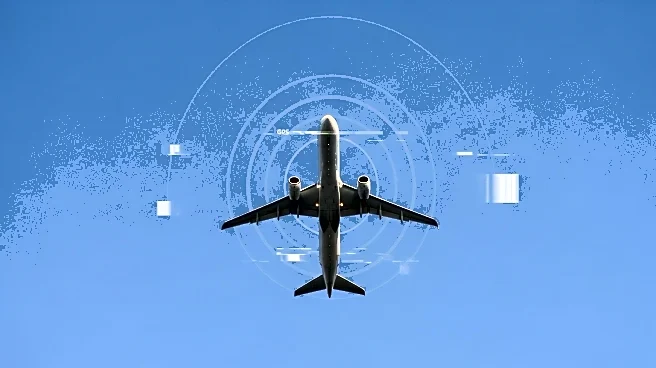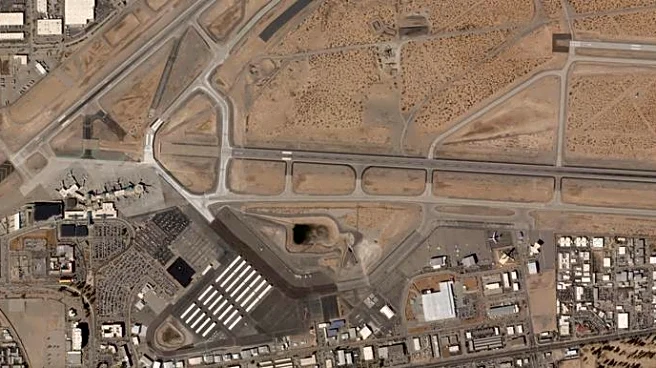What's Happening?
Russia is suspected of jamming the GPS signal of a plane carrying European Commission President Ursula von der Leyen over Bulgaria, causing the aircraft to circle an airport for an hour. The incident occurred as von der Leyen was traveling to Plovdiv, Bulgaria, when her charter plane lost satellite navigation aids. The commission's deputy spokesperson, Arianna Podestà, confirmed the incident, attributing it to potential interference by Russia. This type of interference has become increasingly common in airspace near Russia, though it remains unclear if von der Leyen was specifically targeted. The incident was reported by the Financial Times, noting the plane's delay during von der Leyen's four-day trip to EU member states on the bloc's eastern border. The commission spokesperson emphasized the need to ramp up defense capabilities and support for Ukraine in response to such threats.
Why It's Important?
The suspected GPS jamming incident underscores the ongoing geopolitical tensions between Russia and the European Union. Such interference poses significant risks to aviation safety and highlights the broader security challenges faced by EU member states near Russia. The incident reinforces the EU's commitment to enhancing defense capabilities and supporting Ukraine amidst ongoing threats. GPS jamming and spoofing have increased since Russia's invasion of Ukraine, affecting air and sea travel. The EU has raised alarms about these threats, with Poland and Lithuania reporting numerous cases of electronic interference. The EU's response includes imposing sanctions on companies involved in GPS signal disruption and developing strategies to prevent jamming, reflecting the seriousness of the threat.
What's Next?
The EU is expected to continue developing aviation-specific plans and broader strategies to counter GPS jamming. Sanctions on companies involved in signal disruption are part of the EU's response, aiming to deter further interference. The incident may prompt increased collaboration among EU member states to enhance security measures and defense capabilities. Additionally, the EU's support for Ukraine is likely to intensify, with discussions on security guarantees and defense strategies. The geopolitical landscape may see further developments as the EU and its allies navigate the challenges posed by Russia's actions.
Beyond the Headlines
The incident highlights the ethical and legal dimensions of electronic warfare tactics like GPS jamming. Such actions raise questions about international norms and the legality of interfering with civilian aviation. The broader implications include potential shifts in defense policies and international relations, as countries seek to address the security threats posed by such tactics. The EU's response may influence global standards and cooperation in countering electronic warfare.










